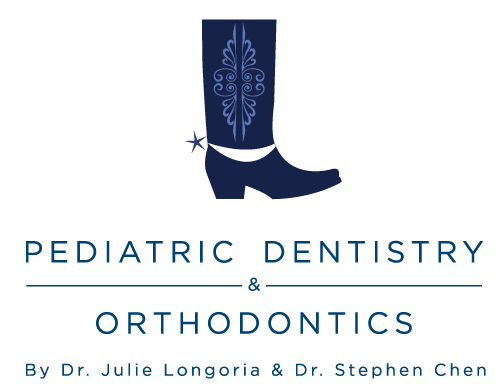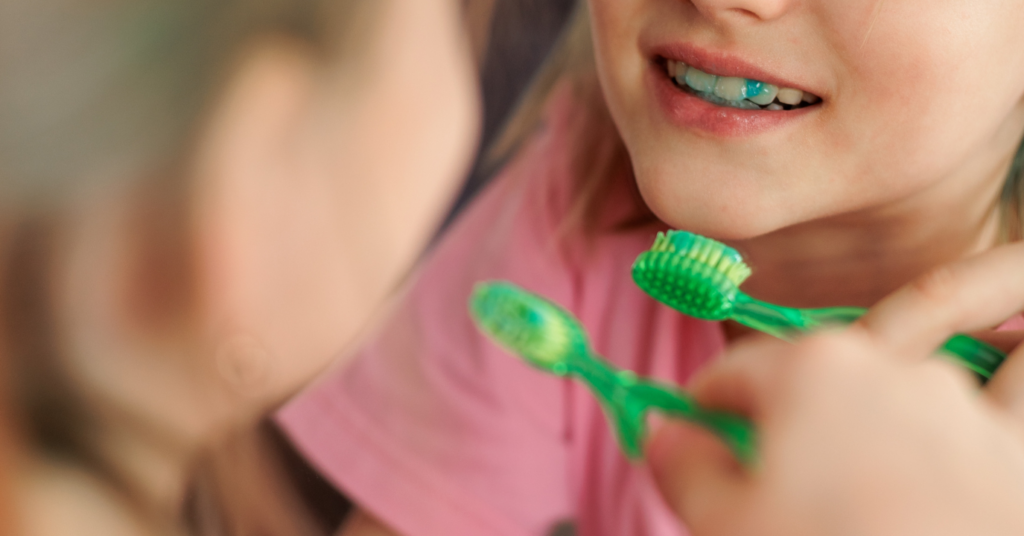Keeping your child’s smile bright and healthy doesn’t stop at the dentist’s office. In fact, the time between dental visits is crucial for maintaining good oral hygiene.
You play a vital role in establishing habits that can prevent cavities and promote lifelong dental health.
With the right strategies, you can empower your child to take charge of their dental care. From fun brushing techniques to dietary choices, these tips can make a significant difference.
Let’s explore the top five tips for pediatric dental care that will keep those little teeth shining until the next check-up.
Understanding Pediatric Dental Care
Pediatric dental care focuses on maintaining and improving the oral health of children. It emphasizes preventive measures to avoid dental issues and instill good habits that promote a lifetime of healthy teeth.
Establishing a routine is essential. You should incorporate daily brushing and flossing, enabling children to develop strong oral hygiene practices early.
Emphasizing the role of nutrition, it’s critical to monitor what children consume. Limiting sugary and acidic foods/drinks prevents tooth decay. Instead, encourage healthy snacks, such as crunchy fruits and vegetables, which naturally clean teeth and provide essential nutrients.
It’s essential to educate children on proper dental practices. Teach them to use their teeth only for chewing food, avoiding harmful habits like using teeth to open packages or bite nails. This practice protects their teeth from unnecessary damage.
Encouraging regular hydration is vital. Drinking water after meals helps rinse away food particles and sugars, reducing the risk of cavities and promoting oral health.
Involving children in these activities fosters a sense of responsibility and ownership over their dental care, setting them up for success until their next dental visit.
Tip 1: Establish a Consistent Brushing Routine
Establishing a consistent brushing routine is vital for maintaining your child’s oral health. Regular brushing removes plaque and reduces the risk of cavities and gum disease.
Importance of Regular Brushing
Regular brushing forms the foundation of good oral hygiene. It helps eliminate food particles and plaque, which can lead to serious dental issues if not addressed.
Brushing twice a day, especially after meals, can significantly lower the chances of cavities and promote healthy gums, ensuring your child maintains a bright and healthy smile.
Age-Appropriate Techniques
Using age-appropriate techniques is essential for effective brushing. For children under three, apply a rice-sized smear of fluoride toothpaste. For kids aged three to six, use a pea-sized amount.
Teach your child to use gentle, circular motions while brushing, covering all surfaces of the teeth—fronts, backs, and chewing surfaces—and gently working along the gum line. This practice builds a solid foundation for lifelong good dental habits.
Tip 2: Promote Healthy Eating Habits
Healthy eating habits significantly influence your child’s dental health. Encouraging the right foods and limiting detrimental options helps strengthen teeth and maintain oral hygiene.
Foods to Encourage
- Crunchy Fruits and Vegetables: Foods like apples, carrots, and celery serve as excellent choices for promoting dental health. Their high-water content washes away food particles and bacteria. Additionally, their crisp texture stimulates saliva production, which neutralizes acids and re-mineralizes tooth enamel.
- Dairy Products: Dairy products such as milk, cheese, and yogurt offer rich sources of calcium and phosphorus, essential minerals for building strong teeth and bones. Specifically, cheese contains casein, a protein that protects tooth enamel from acids produced by bacteria in the mouth.
- Leafy Greens: Leafy greens like spinach, kale, and Swiss chard supply vital vitamins and minerals, including calcium, vitamin K, and folic acid. These nutrients support overall oral health and contribute to stronger teeth.
Foods to Avoid
- Sugary Snacks: Snacks high in sugar, such as candy and cookies, promote tooth decay. Bacteria in the mouth feed on sugar, producing acids that damage tooth enamel and lead to cavities.
- Starchy Foods: Foods like potato chips and white bread break down into sugar during digestion. These starchy foods can stick to teeth, creating a breeding ground for bacteria.
- Acidic Beverages: Sodas and fruit juices with high acidity can erode tooth enamel over time. Limit consumption of these drinks to protect your child’s teeth.
- Processed Foods: Many processed foods contain hidden sugars and starches. Always check labels and choose whole, unprocessed options when possible.
By promoting healthy eating habits and avoiding harmful foods, you create a solid foundation for your child’s dental care between visits.
Tip 3: Make Oral Hygiene Fun
Creating a fun atmosphere around oral hygiene encourages children to enjoy brushing their teeth. Engaging methods make routine dental care an exciting part of their day.
Engaging Tools and Strategies
- Turn Brushing into a Game: Set a timer for two minutes and challenge your child to brush until the timer goes off. Make this a daily game to instill routine.
- Use Music: Play upbeat music or a favorite song during brushing time. This keeps your child entertained and makes the two minutes feel shorter.
- Make Your Own Toothpaste: Involve your child in crafting homemade toothpaste using safe, DIY recipes. This hands-on activity generates excitement and curiosity about oral care.
- Sticker Charts: Create a sticker chart to track brushing progress. After a certain number of stickers, reward your child with a small prize, reinforcing their efforts.
- Small Rewards: Hand out small treats or privileges when your child follows their brushing routine consistently. These incentives promote positive reinforcement.
- Brushing Buddies: If possible, brush alongside your child. This builds a sense of teamwork and makes the experience more engaging for both of you.
Tip 4: Educate About Dental Health
Educating your children about dental health fosters a deeper understanding of the importance of oral hygiene. Clarifying common misconceptions encourages better habits and promotes a healthier dental future.
Addressing Common Misconceptions
Clarifying misconceptions about pediatric dental care ensures your children understand the value of maintaining their oral health. Many kids believe baby teeth don’t require care because they’ll eventually fall out.
Explain that cavities in baby teeth can lead to pain and impact future adult teeth. Educate them on how proper dental hygiene, including brushing and flossing, can prevent these issues.
Discuss the necessity of routine dental check-ups, emphasizing that these visits help maintain their healthy smile.
Importance of Regular Dental Visits
Highlighting the significance of regular dental visits instills good habits early. Routine check-ups allow for early detection and prevention of dental issues, setting a foundation for lifelong dental health.
Explain that dentists can offer guidance tailored to your child’s needs, addressing any concerns or questions. Reassure them that these visits play a vital role in their overall health, contributing not just to their teeth but also to their confidence and well-being.
Tip 5: Be a Positive Role Model
You influence your child’s dental habits through your actions. By demonstrating good oral hygiene practices, you foster positive behaviors in your child.
Setting a Good Example
- Practice Daily Oral Hygiene: Brush and floss your teeth alongside your child. This shows them that oral care is a priority for everyone in the family.
- Choose Healthy Snacks Together: Select nutritious foods as a family. Opt for fruits, vegetables, and dairy over sugary or processed items.
- Share Your Dental Visits: Discuss your experiences with dental check-ups in a positive light. Highlight the importance of these visits for maintaining good health.
- Establish a Brushing Routine: Create a family brushing schedule that everyone follows. Consistency reinforces the importance of dental care.
- Offer Praise and Encouragement: Acknowledge your child’s efforts in maintaining their oral hygiene. Celebrate small successes to keep them motivated.
- Provide Educational Resources: Share books or videos about oral health. Use these tools to encourage curiosity and understanding about dental care.
Conclusion
Prioritizing pediatric dental care between visits is essential for your child’s long-term oral health. By fostering good habits and making dental hygiene fun you can set a strong foundation for a lifetime of healthy smiles. Remember to be a positive role model and engage your child in the process.
Encouraging healthy eating and hydration plays a vital role in preventing dental issues. With your support and guidance your child will not only understand the importance of dental care but will also practice it with enthusiasm.
Regular check-ups will complement these efforts ensuring any potential problems are addressed early. Embrace this journey together and watch your child’s confidence grow alongside their bright smile.
Frequently Asked Questions
Why is pediatric dental care important?
Pediatric dental care is essential for establishing healthy oral hygiene habits in children, preventing tooth decay, and addressing any issues early. Good dental practices contribute to overall health and can influence a child’s confidence and social interactions.
How can parents promote good oral hygiene at home?
Parents can promote good oral hygiene by establishing a daily brushing routine, supervising their children’s tooth brushing, and making it fun. Offering healthy snacks, sharing dental experiences, and praising good habits foster a positive attitude toward dental health.
What are healthy snacks for children’s teeth?
Healthy snacks include crunchy fruits like apples and peaches, vegetables such as carrots and celery, dairy products like cheese and yogurt, and leafy greens. These options help strengthen teeth and prevent decay while providing essential nutrients.
How can I make brushing fun for my child?
You can make brushing fun by using interactive games, playing music during brushing time, creating homemade toothpaste, or incorporating rewards like stickers. Involving children in the process can encourage enthusiasm and consistency in their oral hygiene routine.
When should children visit the dentist for the first time?
Children should visit the dentist by their first birthday or within six months of their first tooth appearing. Early dental visits help monitor growth and development, establish a relationship with the dentist, and educate parents about proper oral care.
What role do parents play in their children’s dental health?
Parents play a crucial role by modeling good oral hygiene, encouraging healthy eating habits, supervising brushing, and providing education about dental health. Their involvement helps children understand the importance of maintaining good oral hygiene.
Partner with West U Smiles for Your Child’s Dental Health
At West U Smiles, we are committed to helping your child develop healthy dental habits that last a lifetime. Our team provides compassionate, expert pediatric dental care to ensure your child’s smile stays bright between visits.
If you’re ready to take the next step in your child’s oral health journey, schedule an appointment with West U Smiles today, and let us work together to keep their smile healthy and happy.


